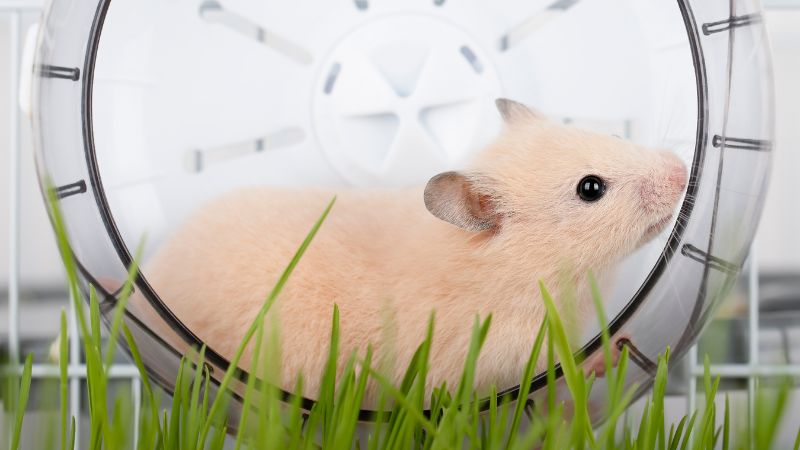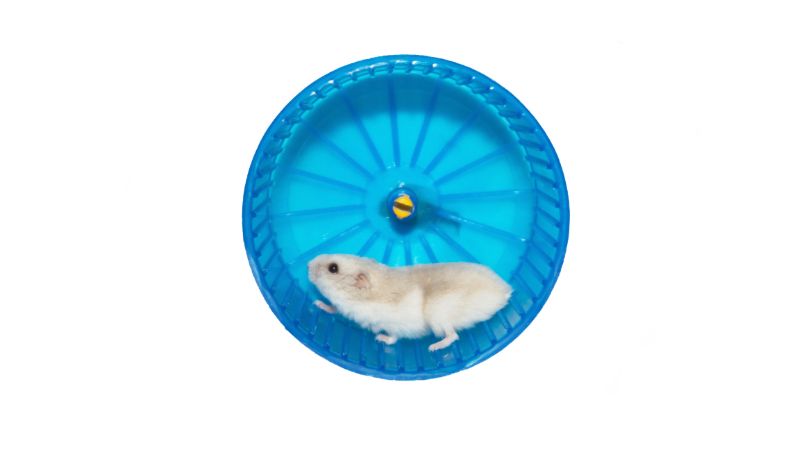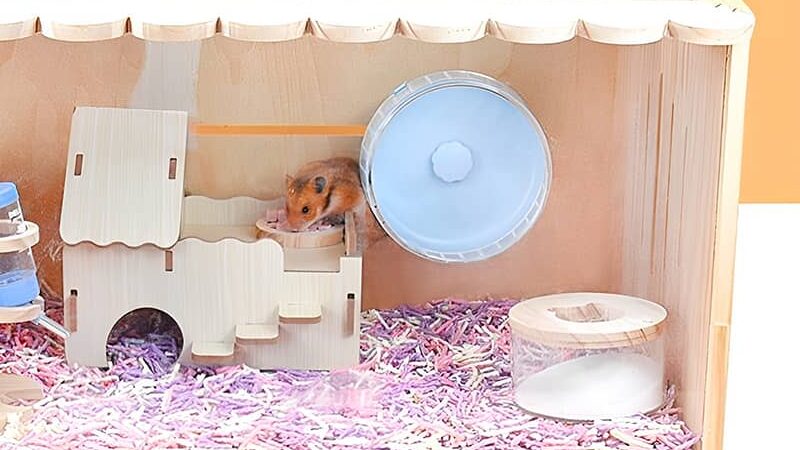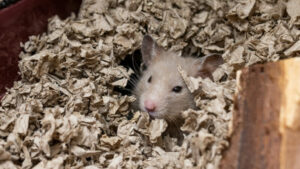
Can You Travel with a Hamster? A Comprehensive Guide
Traveling with a pet hamster isn’t as straightforward as it might seem. It requires careful consideration of your pet’s safety, comfort, and the logistics involved.

A hamster wheel is a common add-on for hamster homes, and nowadays, many come with one included. Hamsters naturally enjoy running, so they really like using exercise wheels. They can even run long distances during the night!
But is a wheel necessary for hamsters? And why do they enjoy running a lot? We’ll cover all these details below.
They do! You might think a hamster running on a wheel looks odd like it’s just because they’re in a cage, but it’s a good thing. Hamsters need exercise wheels to do what they naturally do in the wild.
Fun fact: Hamsters can run up to 5-6 miles (about 10 kilometers) every night!
Here’s a list of some great hamster wheels:

For hamsters in the wild, Syrian and dwarf hamsters travel a lot at night in their natural home. They come out of their burrows after sunset to look for food and stuff for their nests nearby.
This searching habit is very natural, and it’s why hamsters are so energetic – they’re made to run! When you have a hamster, it’s important to help them do this, and a hamster wheel is the best way.
Hamster wheels let hamsters run as much as they would in the wild, even in a small cage. Even though their cage isn’t big, a hamster can use a wheel to get rid of all its extra energy.
Running is a natural thing for hamsters, and the wheel is the best way for them to do this in a cage. Wheels also stop them from getting bored, which can happen if they don’t have enough toys or chances to move around. Just like people, hamsters need to move around to stay healthy and not get too heavy.
Running on a wheel also seems to satisfy a hamster’s curiosity and their love of exploring, which they might not get to do much in a cage.
Remember, hamsters are active at night. You don’t want a noisy wheel disturbing your sleep! Thankfully, there are quiet hamster wheels available, so you can rest well while your hamster stays active.
It’s also key to choose a stable wheel that won’t tip over. Some wheels attach to the cage, and others have a stand. Both types are good if they’re sturdy and don’t fall easily. You can even put the stand under bedding for extra steadiness.
Be careful to avoid wheels with small holes or gaps. Hamsters have tiny feet that could get stuck, and such wheels can cause injuries.
Not all wheels are the same! It might be worth it to spend a bit more on a durable wheel that will last your pet’s lifetime. The best wheels often have non-slip surfaces for extra safety.
This is the ideal wooden hamster home for your pet, complete with the perfect quiet hamster wheel:

Hamster wheels are available in various sizes, and it’s crucial to choose the correct one for your hamster. To check if the wheel is big enough, watch your hamster run. Its back should be straight, not curved or leaning, to avoid injuries.
Here are the recommended minimum wheel sizes:
What are some good alternatives to wheels for exercise? Hamster balls are a great option besides wheels. They let your pet run around in a bigger space and explore like they would in nature.
It’s usually best to have both a hamster ball and a wheel. This keeps your pet fit and stops them from getting bored. Letting your hamster run in the ball for 15-20 minutes is ideal, just make sure it’s nowhere near stairs!
Another option is a flying saucer toy, which also encourages running. Wheels are often better as they allow for a more natural running style, but a saucer is good if you don’t have much room.
So that’s why hamsters enjoy running on wheels! We hope this answers your questions, but if not, don’t hesitate to contact us. We also have many more hamster guides, tips, and advice on our blog – be sure to look at the related posts below.
Q: How can I make my hamster’s wheel quieter?
A: To reduce noise from your hamster’s wheel, try lubricating the axle with a pet-safe lubricant, ensuring the wheel is stable and not wobbly, inspecting for any damage, and using padding under the wheel. If it’s still noisy, consider buying a wheel designed to be quieter.
Q: What are the risks of wheels with holes or gaps?
A: Wheels with holes or gaps can trap a hamster’s tiny feet, leading to injury. It’s best to choose wheels with a solid running surface.
Q: Can a hamster wheel be too big?
A: A wheel that’s too big can be difficult for a hamster to run on and may cause strain. Stick to the recommended minimum sizes for your hamster’s breed.


Traveling with a pet hamster isn’t as straightforward as it might seem. It requires careful consideration of your pet’s safety, comfort, and the logistics involved.

Finding the best hamster cage for Syrian hamster is crucial, as these curious, low-maintenance, and independent pets thrive in the right environment. The primary concern

When I began, the task of selecting essentials for a natural hamster habitat was daunting. To ease this process, I’ve assembled an exclusive set of

Have you ever wondered, “Are hamsters happier in bigger cages?” Generally YES. It’s a question that might seem straightforward, but there’s more to it than

Traveling with a pet hamster isn’t as straightforward as it might seem. It requires careful consideration of your pet’s safety, comfort, and the logistics involved.

Finding the best hamster cage for Syrian hamster is crucial, as these curious, low-maintenance, and independent pets thrive in the right environment. The primary concern

When I began, the task of selecting essentials for a natural hamster habitat was daunting. To ease this process, I’ve assembled an exclusive set of

Have you ever wondered, “Are hamsters happier in bigger cages?” Generally YES. It’s a question that might seem straightforward, but there’s more to it than